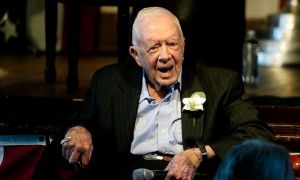
Turkey, uniquely straddling the continents of Europe and Asia, has long held a critical position in global geopolitics. Historically, this geographical advantage has positioned Turkey as a key player in various regional and international dynamics. As a NATO member since 1952, Turkey has played a significant role in the Western alliance, acting as a bulwark against Soviet expansion during the Cold War and serving as a vital ally in the Middle East. In the post-Cold War era, Turkey’s role has evolved significantly. Today, it seeks to establish itself not just as a member of NATO but as an independent regional power broker with its interests and agenda.
Since joining NATO, Turkey has been a pivotal member, offering the alliance a strategic advantage by controlling access to the Black Sea through the Bosporus Strait and serving as a forward base against the Soviet Union. The country’s participation in NATO-led missions in Afghanistan, Kosovo, and Libya exemplifies its commitment to the alliance’s collective defense initiatives. Despite these contributions, Turkey has often faced tension with its NATO allies, primarily due to its unique geographical concerns, distinct cultural identity, and differing perspectives on handling regional conflicts.
Shift Toward Independent Foreign Policy
In recent years, Turkey has increasingly pursued a more independent foreign policy, marked by a shift towards regional autonomy and assertiveness. This shift is largely attributed to the changing global dynamics and Turkey’s ambitions to play a more significant role in the Middle East, the Caucasus, and North Africa. The leadership of President Recep Tayyip Erdoğan has been instrumental in this transformation, advocating for a multi-dimensional foreign policy that seeks to diversify Turkey’s international alliances and influence.
Relations with Russia and Iran: A Balancing Act
Turkey’s engagement with Russia and Iran, two significant regional powers, reflects its attempt to balance its NATO commitments with regional interests. The purchase of the S-400 missile defense system from Russia in 2019 was a controversial move, straining relations with the United States and leading to Turkey’s suspension from the F-35 fighter jet program. Simultaneously, Turkey has managed to maintain a delicate relationship with Iran, collaborating on issues like Syria while opposing Tehran’s regional ambitions. This balancing act underscores Turkey’s desire to assert its sovereignty and pursue a foreign policy that aligns with its national interests.
Syrian Conflict: A Testing Ground for Turkey’s Ambitions
The Syrian civil war has been a significant testing ground for Turkey’s regional ambitions and foreign policy strategy. Turkey has actively intervened in Syria to counter Kurdish militias, which it views as a threat to its territorial integrity, and to exert influence over the future political settlement in Syria. Through military operations such as “Euphrates Shield,” “Olive Branch,” and “Peace Spring,” Turkey has demonstrated its willingness to use hard power to achieve its objectives. These interventions reflect Turkey’s strategic interest in shaping the regional order and preventing the emergence of a Kurdish state along its borders.
Influence in Eastern Mediterranean: Energy and Territorial Disputes
Turkey’s assertiveness is also evident in the Eastern Mediterranean, where it has pursued an active policy to secure its energy interests. The discovery of substantial gas reserves in the Eastern Mediterranean has heightened tensions, particularly with Greece and Cyprus. Turkey’s controversial maritime deal with Libya and its subsequent exploration activities in contested waters have led to friction with the European Union. This dispute underscores Turkey’s determination to protect its economic interests and assert its influence in a region that holds significant strategic importance.
Role in Caucasus: Nagorno-Karabakh Conflict
The 2020 Nagorno-Karabakh conflict between Armenia and Azerbaijan highlighted Turkey’s growing influence in the Caucasus. By providing military support to Azerbaijan, Turkey demonstrated its capability and willingness to shape outcomes in its favor. Turkey’s involvement was driven by its historical, cultural, and strategic ties with Azerbaijan, and its desire to counterbalance Russian influence in the region. The successful outcome for Azerbaijan, with Turkey’s backing, further solidified Ankara’s role as a regional power broker and showcased its capacity to influence regional conflicts.
Turkey’s Engagement in Africa
In recent years, Turkey has expanded its influence in Africa, aiming to enhance economic ties, political alliances, and military cooperation. Turkish investments, diplomatic missions, and military agreements have grown significantly across the continent. Turkey’s involvement in Somalia, where it has established a military base and provided humanitarian aid, exemplifies its broader strategy to gain a foothold in Africa. This engagement not only serves Turkey’s economic interests but also allows it to project power and compete with other international actors like China and Russia.
Turkey’s Regional Aspirations
Turkey’s quest to establish itself as a regional power broker presents both opportunities and challenges. On the one hand, Turkey’s strategic initiatives allow it to play a critical role in regional politics, economic developments, and security matters. On the other hand, its assertive policies have led to strained relations with NATO allies, the European Union, and neighboring countries. Balancing its traditional alliances with new partnerships, managing regional conflicts, and addressing internal economic and political issues are significant challenges that Turkey must navigate to maintain its position and influence.
Turkey’s transition from a NATO member focused on Western alliances to a regional power broker pursuing independent policies signifies a profound shift in its foreign policy orientation. This evolution is shaped by Turkey’s strategic location, historical context, and leadership’s vision for the country’s role on the global stage. As the new world order continues to evolve with shifting power dynamics and regional conflicts, Turkey’s role will remain crucial. Its ability to balance its regional ambitions with its international commitments will determine its success as a key player in the new world order.






